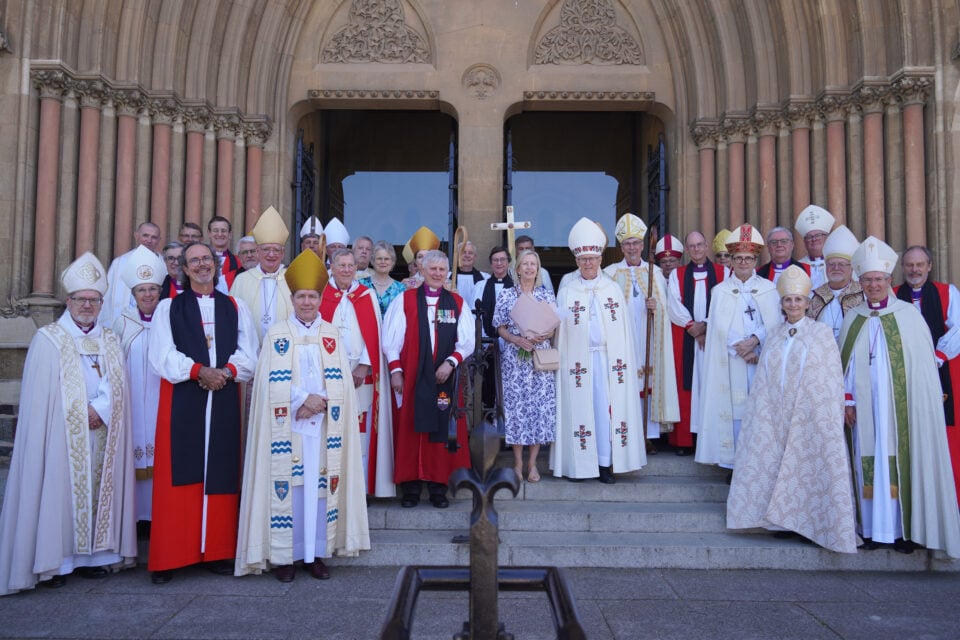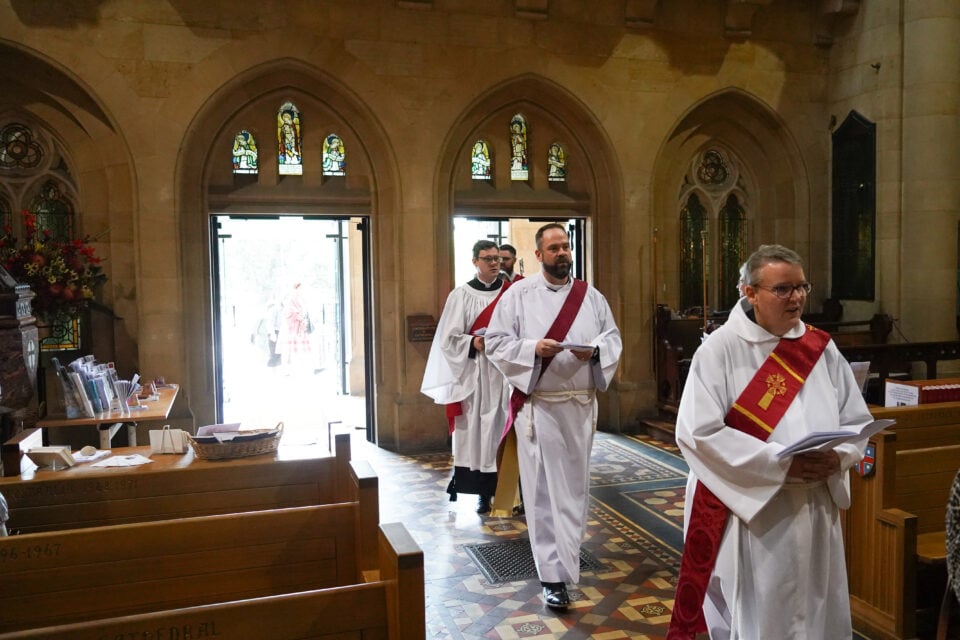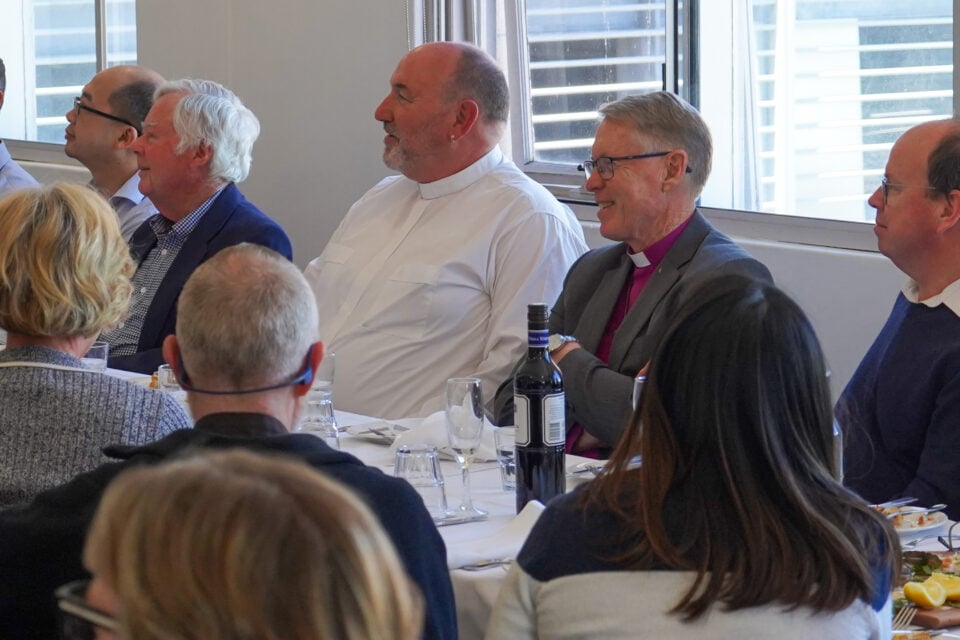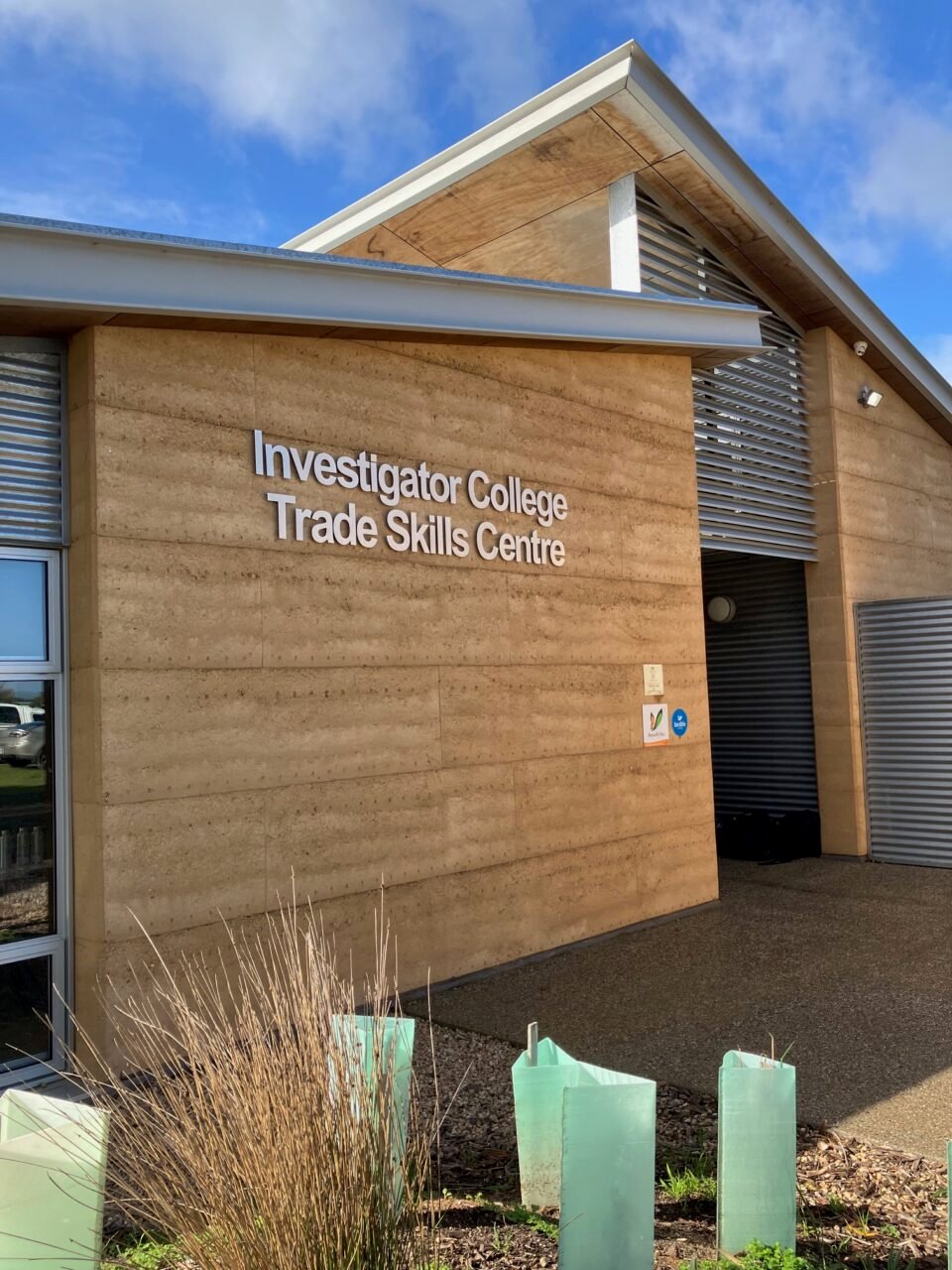A report commissioned by the Anglican Diocese of Adelaide has found that while clergy are increasingly reporting child abuse, significant challenges and training gaps persist in responding to adult sexual assault and domestic and family violence.
The study, conducted by Professor Sarah Wendt and Dr Josephine Clarke from the University of Melbourne, revisits a 2005 report by Dr Zoë Morrison, offering a 20-year perspective on the Diocese’s efforts to tackle abuse.
“The Anglican Church is determined to be a part of the solution to the national problem of gender-based violence and support victims and survivors of intimate partner violence,” the Primate of the Anglican Church, Archbishop Geoff Smith said.
The Church has made Ten Commitments to prevent and respond to domestic and family violence and this research informs the church’s strategy to equip clergy and church workers to enable them to recognise all forms of gender-based violence, respond well to disclosures and know the referral pathways to access specialised services.
The June 2024 report, “A study into the experiences of clergy and church workers in the Anglican Diocese of Adelaide when responding to abuse of children, sexual assault of adults, and domestic and family violence”, reveals a substantial increase in clergy reporting suspicions or disclosures of child abuse.
The research study used mixed methods across three stages to:
- determine clergy and church workers’ attitudes and behaviours in responding to the abuse of children, sexual assault of adults, and domestic and family violence.
- understand what education clergy and church workers have received about responding to the abuse of children, sexual assault of adults, and domestic and family violence.
- understand the barriers and enablers in responding to the abuse of children, sexual assault of adults, and domestic and family violence in a church setting.
- identify strategies that will facilitate clergy and church workers to respond effectively to the abuse of children, sexual assault of adults, and domestic and family violence.
Seventy-five per cent of clergy surveyed reported having received information or formed a suspicion of child abuse, an increase from 49% in 2004. Furthermore, the findings indicate a significant rise in immediate reporting of such concerns.
However, the report highlights ongoing concerns and areas needing urgent attention. While confidence in recognising and responding to child abuse has generally improved, the study found that responses to adult sexual assault and domestic violence are less consistent and often lack adequate training and support.
The researchers acknowledged that the Anglican Diocese of Adelaide over time has invested much into supporting church communities to safely respond to and report different forms of interpersonal violence and abuse.
Establishing the Survivor Advocacy Group, Survivor Advocate role, the Domestic and Family Violence Working Group, the Diocese’s Vision plan – supporting social justice, safety, eliminating domestic and family violence, and supporting survivors of abuse – as well as the Diocese’s support for implementing the Ten Commitments, are all evidence of progress.
Q&A
The Adelaide Guardian asked the researchers to describe their experiences of conducting this research.
How did this research compare with other similar research studies you have conducted within faith settings?
We have now completed research for the Anglican Diocese of Adelaide and the Lutheran Church of Australia. We have found there is considerable support for the role of the church and communities to address interpersonal violence and abuse and violence against women.
Notwithstanding we have conducted studies with different Christian denominations, a key finding that has been repeated is that addressing interpersonal violence and abuse involves recognising and addressing gender-based inequalities within faith-based communities – these matters are frequently inseparable in discussions.
Another key point to make is that research findings demonstrate there is much work to be done in understanding how to safely respond to people who use violence.
Were there any surprise findings from this research?
There were some unexpected findings and all findings are important, indicating the significance of undertaking the research given this area of research is limited in Australia. For example, the important issue of recognising and valuing older women and recognising elder abuse. Further, the issue of how to support people who have historical experiences of violence and abuse. Also, the lack of confidence in responding to adult sexual assault and domestic and family violence, is important to further understand and respond to.
Some of the findings resonated with those delivered by Dr Zoe Morrison’s prior research – this is important and indicates ongoing issues and needs, particularly regarding supporting gender equality and addressing gendered power relations.
Has this research informed other research you hope to conduct in future?
Absolutely! The research certainly highlighted the significance of the role of pastoral care in addressing and responding to interpersonal violence and abuse. We have responded to this insight by designing a new research project through our current research with the ARC Centre of Excellence for the Elimination of Violence Against Women (CEVAW), that aims to further explore the important role of faith-based pastoral care in practice, in response to victim/survivors and how best to support their safety, healing and recovery. Further, the research identified that responding to people who use violence is difficult, and so we need to understand more about how pastoral care is practiced in responding to them, and what will support safe responses and the cessation of violence as well as enable accountability.
Through CEVAW, our new research program (established last year) has a commitment to understanding and supporting the role of civil society and communities, with an emphasis on religious and spiritual community contexts, and the role of religious communities and leaders in contributing to ending violence against women. So, we are very fortunate and grateful we have scope to continue to build on prior research for public and community benefit.
We note that the research completed for the Anglican Diocese of Adelaide emphasises the benefit of undertaking research in partnership with faith-based organisations – this supports the scope and a research process that leads to findings and recommendations that can benefit the organisation through providing insights for policy and practice change, that in turn help support safety and peace, and living free from violence. We have incorporated this learning – and valuing existing faith-community expertise and knowledge – into our current research project design and are now inviting faith-based organisations to partner in our new research project ‘Faith-based pastoral care: what can it offer in addressing domestic violence?’ We are also involved in planning for future research to understand faith-community needs and how to support them to gain confidence in responding to sexual assault and violence, including intimate partner sexual violence.
For more information on how to participate in the new research project ‘Faith-based pastoral care: what can it offer in addressing domestic violence?’ please contact:
Professor Sarah Wendt (Lead): [email protected]
Dr Josephine Clarke: [email protected]






